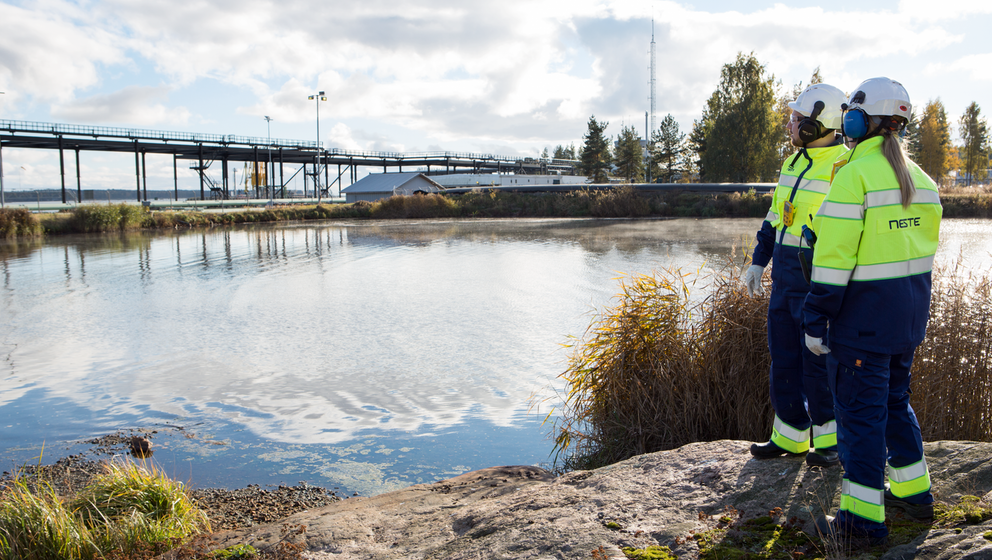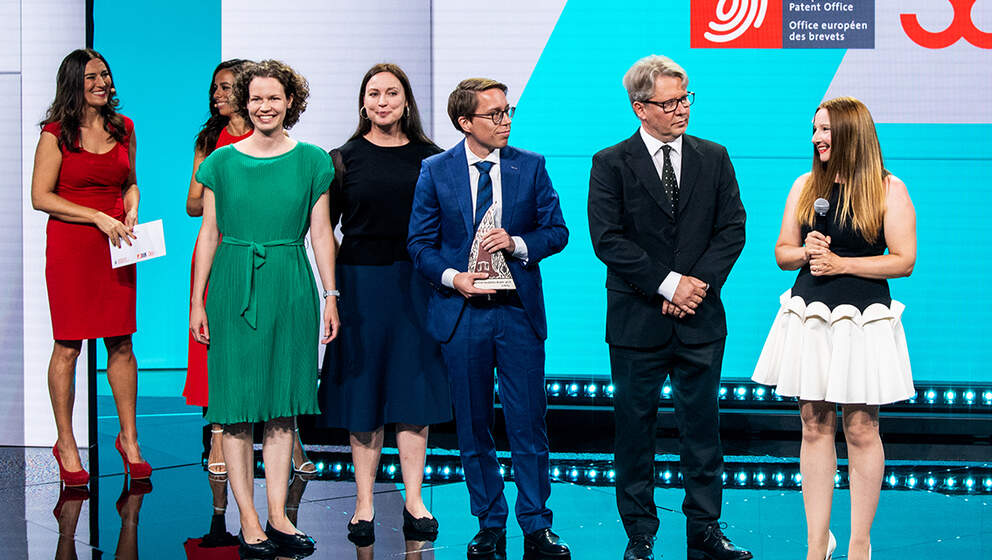Neste and partner companies conclude the E-Fuel research project showcasing progress in the development of electrofuels

Neste Corporation, News, 17 January 2024
Renewable hydrogen produced by green electricity and carbon capture and utilization (CCU) play an important role in combating climate change. Low-emission e-fuels produced using these technologies are particularly suitable for segments that are difficult to electrify, such as aviation and marine. The joint E-Fuel research project demonstrating high temperature electrolysis (SOEC), carbon capture, and hydrocarbon synthesis technologies has now come to its successful end. During the three-year project, the development of synthetic e-fuels towards commercial scale production was accelerated.
The E-fuel research project that has been funded by Business Finland and consortium partners and coordinated by VTT is part of the Neste Veturi ecosystem. The project consortium of 15 partners covered all parties in the value chain from CO2 capture to green hydrogen and fuel production, logistics, as well as users of the transportation fuels in aviation and road and marine transport.
The project successfully generated hundreds of kilograms of synthetic hydrocarbons intended for the production of novel sustainable transportation fuel. The hydrocarbons were refined by Neste mainly into carbon neutral synthetic e-diesel, which was tested on a diesel-powered tractor in late 2023. During the project, technologies of the consortium companies were developed further, and the produced diesel burned more cleanly than fossil and renewable diesels in the current market. E-fuels can be considered carbon-neutral, as they are produced using captured CO2 emissions and renewable hydrogen, effectively offsetting the carbon dioxide released during combustion in an engine.
“The research and development of Power-to-X technologies is one of our key focus areas. E-fuels offer a way to expand the carbon-neutral transport fuel pool beyond biomass-based renewable fuels to replace fossil fuels. In the aviation sector, specifically, where the constraints of battery range and weight pose challenges, the development of sustainable electric aviation fuels suitable for current aircraft and distribution infrastructure plays an important role in reducing the use of fossil fuels. It has been our pleasure to participate in the E-Fuel project, the results of which create a good foundation for continuing the development work,” says Dietmar Huber, Vice President of Innovation Business Platform Power-to-X at Neste.
“I’m happy about the very successful results of the project. VTT together with industrial partners developed further technologies for green hydrogen production, CO2 capture and e-fuels synthesis and finally we successfully demonstrated the integration of these process parts and the production of e-fuels. Furthermore, we were able to demonstrate the high quality of the produced paraffinic e-fuel with low emissions in the field test. We also gathered and developed valuable information on the profitability and sustainability of e-fuels production,” says VTT Research Professor Juha Lehtonen, responsible leader of the project.
Neste Veturi R&D program develops sustainable fuels and chemicals from renewable and recycled raw materials that have been difficult to utilize so far. The raw materials and their related conversion technologies in focus are lignocellulosic residues, micro algae, novel vegetable oils, plastic waste, municipal solid waste, renewable hydrogen and CO2. The programme is co-funded by Business Finland.

Further information: Please contact Neste's media service, tel. +358 800 94025 / media@neste.com (weekdays from 8.30 a.m. to 4.00 p.m. EET). Please subscribe to Neste’s releases at https://www.neste.com/for-media/releases-and-news/subscribe.
Neste in brief
Neste (NESTE, Nasdaq Helsinki) creates solutions for combating climate change and accelerating a shift to a circular economy. The company refines waste, residues and innovative raw materials into renewable fuels and sustainable feedstock for plastics and other materials.
As the world’s leading producer of sustainable aviation fuel and renewable diesel and a forerunner in developing renewable and circular feedstock solutions for polymers and chemicals, Neste helps its customers to reduce their greenhouse gas emissions by at least 20 million tons annually by 2030.
The company’s ambition is to make the Porvoo oil refinery in Finland the most sustainable refinery in Europe by 2030. Neste is committed to reaching carbon-neutral production by 2035, and will reduce the carbon emission intensity of sold products by 50% by 2040. Neste has also set high standards for biodiversity, human rights and the supply chain. The company has consistently been included in the Dow Jones Sustainability Indices and the Global 100 list of the world’s most sustainable companies. In 2022, Neste's revenue stood at EUR 25.7 billion. Read more: neste.com

